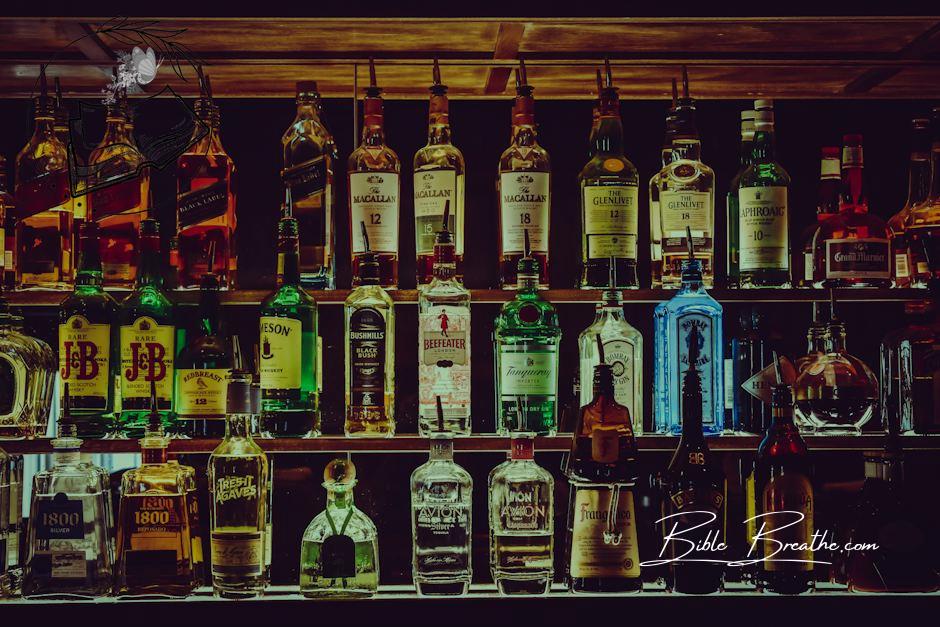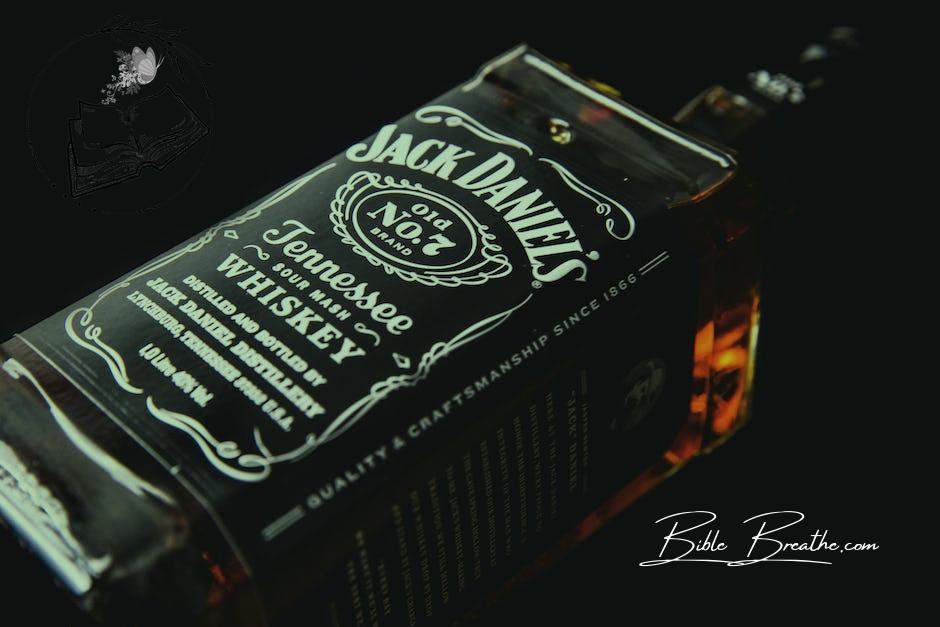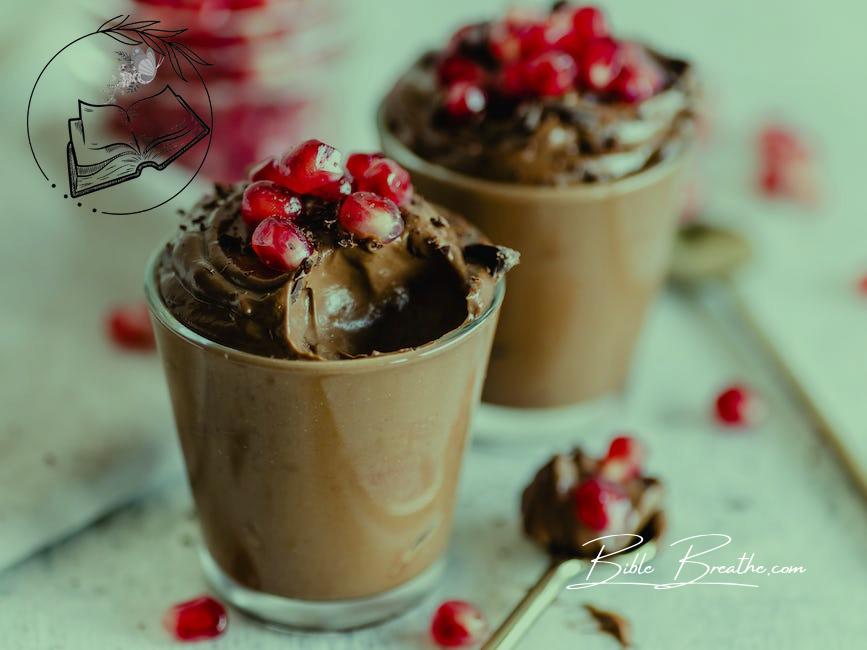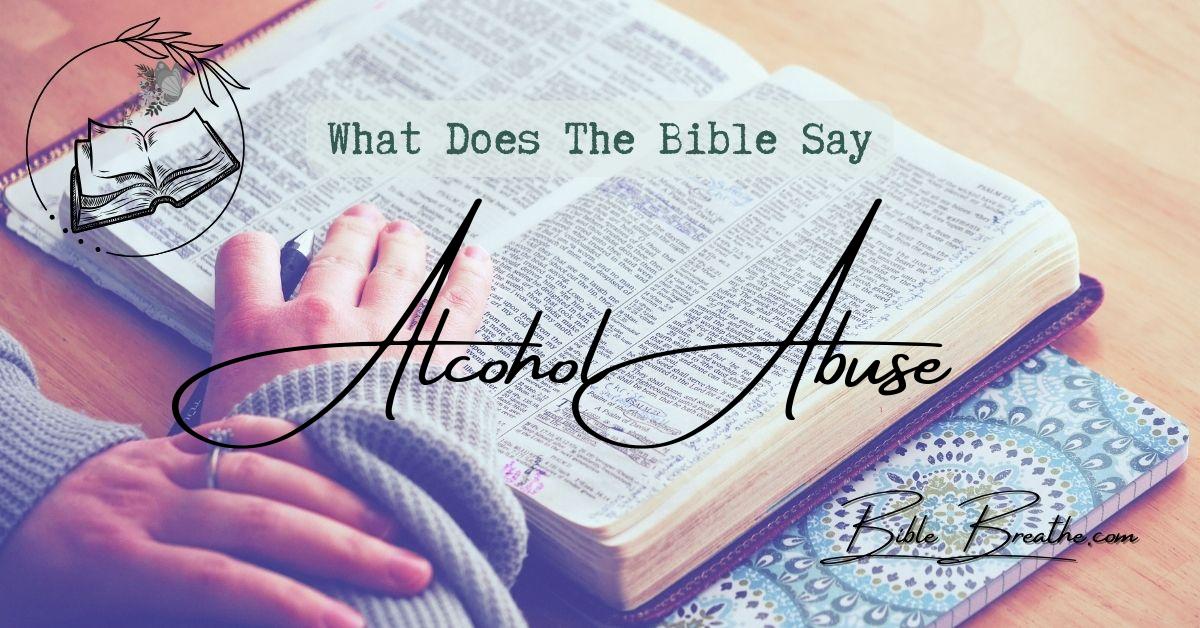What’s the deal with the Bible and alcohol, fam?
It’s a question we need to address, just like a PASTOR tending to his flock.
In our world of parties, peer pressure, and let’s be real, a bit too much bottle poppin’, the Bible comes through with the wisdom on how to handle this thing.
The Bible isn’t all “no alcohol ever.”
Nah, it’s more like your boy giving you the keys to understanding life’s balance.
Think of it like Proverbs, droppin’ knowledge on the dangers of going overboard and letting the bottle take control.
Now, in Ephesians and Corinthians, it’s all about staying filled with the Holy Spirit.
It’s like fueling up with God’s power, not some liquid courage.
It’s about living that life where faith and wisdom steer the ship, not a shipwreck of wild nights.
But here’s the good news, fam.
The Bible ain’t just pointing fingers.
It’s got the playbook for getting back on track.
It tells us we can beat the temptation, break the chains of addiction, and come out stronger.
It’s like a game plan for real-life rehab.
So, as we dive into this, remember, it’s not about judgin’, but about guiding.
It’s about finding that strength within to keep it 100 and overcome the battles we face.
It’s a real talk, fam, where faith meets the struggle, and we find our way to victory.
🙌🏽
Key Takeaways
- The Bible provides guidance and cautions regarding the perils of substance abuse, shedding light on the relevance of these teachings in addressing modern issues of alcohol abuse.
- Although the Bible does not employ modern terminology such as “addiction,” its messages unmistakably communicate the risks and consequences associated with excessive consumption of substances, including alcohol.
- Turning to scripture and seeking help from a spiritual and supportive community can play a pivotal role in aiding individuals to overcome alcohol abuse, emphasizing the importance of faith and community in the journey to recovery.
- The Bible’s teachings on self-control, temperance, and the consequences of indulgence are timeless and offer valuable insights into the pitfalls of excessive alcohol consumption, encouraging individuals to reflect on their actions and make positive changes.
- Understanding the wisdom within the Bible regarding alcohol abuse can empower individuals to make informed and responsible choices, aligning their behaviors with the teachings and principles outlined in scripture.
Navigating the Temptations: A Biblical View on Alcohol Misuse

Photo modified by BibleBreathe.com. Original photo by Chris F on Pexels
Ever thought about what the good book says regarding the trap of drowning sorrows in the bottle or drowning wisdom in intoxication?
The Bible, an ancient masterpiece, doesn’t spell out “addict” or “addiction” like a modern dictionary, but it’s no stranger to the perils of substance abuse.
Picture it like a timeless painting with a message that doesn’t fade, despite the changing frames of words over the centuries.
The Bible paints a vivid picture of the dangers tied to intoxication and drunkenness, despite its mentions of wine and strong drink symbolizing joy and celebration.
You can find this wisdom splattered across the canvas of scripture.
In the book of Proverbs, it’s put like this:
“Wine is a mocker, strong drink is raging: and whosoever is deceived thereby is not wise.” – Proverbs 20:1 (KJV)
It’s an ageless caution, not just a relic of ancient speech.
Similarly, Ephesians 5:18 warns us,
“Do not get drunk on wine, which leads to debauchery.”
Clearly, it’s not the substance itself but its misuse that’s the issue.
The Holy Spirit, as described in Corinthians, steers us toward sobriety and self-control, steering clear of the snares that can lead us astray.
Think about it in today’s terms: You might not blink at that extra glass of wine at dinner, but what happens when one glass becomes many?
That’s where the timeless wisdom of scripture shines, offering guidance and rehabilitation.
So, even if the Bible doesn’t use today’s lingo, the message stands tall: Be wise, avoid the trap of excess, and find strength and spiritual healing in the divine when faced with temptation.
The Divine Warning Against the Perils of Excessive Drinking

Photo modified by BibleBreathe.com. Original photo by Craig Adderley on Pexels
Ever walked into a room and sensed a change in the air?
You know, that moment when you can almost feel the electricity, the tension?
It’s a bit like what you’ll find in 1 Peter 5:8:
“Be sober-minded; be watchful. Your adversary the devil prowls around like a roaring lion, seeking someone to devour.” – 1 Peter 5:8 (KJV)
Now, this ain’t just some casual advice; it’s more like a divine alarm bell ringing loudly about the dangers of getting caught up in excessive drinking.
Let’s take a closer look: Why does Peter stress the importance of sobriety just before talking about our spiritual adversary?
Ever watched those nature documentaries where a lion hunts its prey?
It usually goes after the one that’s separated from the herd, maybe injured, or simply not paying attention.
Well, in a similar vein, intoxication blinds us and makes us vulnerable to spiritual attacks.
Imagine this scene: Someone’s at a party, having a bit too much to drink.
Their judgment is clouded, their actions unchecked.
Now, they’re not just at risk of physical harm; they’re also drifting away from the protective embrace of the Holy Spirit.
It’s this spiritual disconnection, intensified by substance abuse, that Peter might be pointing out.
Now, let’s talk about what the entire Bible consistently conveys, whether in Proverbs or Ephesians: It’s not the occasional drink that’s the issue, it’s the addiction, the drunkenness, and the loss of control that can lead you astray.
So, the next time you reach for that glass, maybe pause for a moment and ask yourself: Is this drink bringing me closer to divine guidance, or is it pushing me further away?
Remember, in the quiet moments of sobriety, wisdom often speaks the loudest.
A Dance with Wisdom: Bible Insights on Alcohol

Photo modified by BibleBreathe.com. Original photo by Maurício Mascaro on Pexels
You ever notice how the Bible’s wisdom is like a well-choreographed dance?
Each step, each move, carefully thought out, with a rhythm and purpose that guides us.
When it comes to the topic of alcohol, that dance continues, delicately balancing the joy of life with some cautionary notes.
Now, let’s zoom in on Ephesians 5:18 – *”Do not get drunk on wine, which leads to debauchery.
Instead, be filled with the Spirit.”* At first glance, it might seem like Paul is giving wine a bad rap.
But let’s dig a bit deeper.
Is Paul telling us that sipping the occasional glass of wine is a total taboo?
Or is he concerned about the state of intoxication, which can cloud our judgment and pull us away from our divine calling?
Imagine this: You’re at a crossroads.
On one side, there’s a flashy path with bright lights, pounding music, and the tempting allure of getting a bit tipsy.
On the other, a gentle path is softly lit, leading to a serene space warmed by the embrace of the Holy Spirit.
One offers fleeting euphoria, while the other promises lasting peace and wisdom.
So, what’s Paul really getting at when he compares drunkenness to being filled with the Spirit?
It’s a call to mindfulness, a spiritual check-in, if you will.
Alcohol blurs the lines, but being filled with the Spirit sharpens our focus, helping us see clearly and make choices that align with our spiritual compass.
Now, in today’s world, where bars are on every corner, and societal pressures are real, the question arises: Where do you want to find your fulfillment? In the tempting allure of the world’s excesses or in the transformative power of the Holy Spirit?
The choice, my friend, is yours.
Just remember, one may fill you temporarily, but the other truly fulfills your soul.
Proverbs’ Fiery Wisdom on Alcohol

Photo modified by BibleBreathe.com. Original photo by Foodie Factor on Pexels
Have you ever been captivated by the mesmerizing dance of a flame?
It flickers, radiates warmth, and invites you in.
But if you get too close, you’ll feel its fiery bite.
The Bible, particularly the wisdom-filled book of Proverbs, is no stranger to such vivid truths.
When it comes to dealing with substance abuse, especially alcohol, Proverbs doesn’t hold back.
Proverbs 20:1 puts it eloquently, stating,
“Wine is a mocker, strong drink is raging: and whosoever is deceived thereby is not wise.” – Proverbs 20:1 (KJV)
Let’s break this down a bit.
In this proverb, wine and strong drink are personified as mockers and troublemakers.
Ever encountered someone who, after a few too many drinks, undergoes a dramatic transformation, becoming someone unrecognizable?
The joy and laughter can swiftly turn into tears and conflict.
It’s a slippery slope from intoxication to addiction.
But there’s a deeper layer here.
This proverb draws a direct line between wisdom and our choices regarding alcohol.
Think of it like this: You’re on a journey, ascending the mountain of wisdom.
Every step you take, every choice you make, either propels you higher or causes you to stumble backward.
Alcohol, when abused, is like that deceptive rock that appears sturdy but crumbles under pressure, sending you tumbling down.
So, what’s the key takeaway here?
Is it about completely avoiding alcohol?
Well, not necessarily.
It’s about discernment, guidance, and the choices we make.
Alcohol, in moderation and enjoyed responsibly, can be a part of life’s celebrations.
However, the Bible, with its Christian teachings, cautions us not to be blinded by its allure.
True wisdom lies in knowing when to say ‘no.’
The Sacred Temple: Bible Insights on Alcohol Abuse

Photo modified by BibleBreathe.com. Original photo by Life Of Pix on Pexels
Imagine, just for a moment, a grand cathedral.
Stained glass windows casting colorful patterns, vast echoing chambers, ground hallowed by centuries of reverence.
Every brick, every beam, meticulously crafted.
But what if, instead of cherishing its sanctity, graffiti began to mar its walls, trash cluttered its sacred aisles, and its holiness was disregarded?
My friends, this draws a parallel to our bodies when confronted with the specter of substance abuse.
1 Corinthians 6:19-20 offers a powerful reminder, “Do you not know that your bodies are temples of the Holy Spirit*, who is in you, whom you have received from God?
You are not your own; you were bought at a price.
Therefore, honor God with your bodies.”* This isn’t just a casual suggestion; it’s a divine call to cherish and care for the vessel that God has entrusted to us.
Now, consider what occurs when intoxication and addiction creep in.
Just as graffiti tarnishes a cathedral, alcohol abuse corrodes our physical and mental well-being.
It dims the vibrant colors of our emotions, weakens the beams of our judgment, and desecrates the holy space within us.
Our body, meant to be the temple of the Holy Spirit, becomes clouded by the fog of drunkenness.
So, what’s our course of action?
Rehabilitation and spiritual healing.
Just as restoration projects breathe new life into ancient cathedrals, Christian teachings and guidance equip us with the tools to restore our bodies and minds.
Remember, every time we choose sobriety over temptation, we’re not just resisting; we’re honoring the Master Architect of our very beings.
Finding Your Way Out of Temptations

Photo modified by BibleBreathe.com. Original photo by Ella Olsson on Pexels
Imagine yourself teetering on the edge of a cliff, with the strong winds of temptation threatening to push you into the abyss of substance abuse.
But here’s the remarkable part: You’re not alone on that precipice.
The very God who crafted the mountains beneath your feet also provides a safety net, ensuring you don’t plunge into darkness.
*”No temptation has overtaken you except what is common to mankind.
And God is faithful; He will not let you be tempted beyond what you can bear.
But when you are tempted, He will also provide a way out so that you can endure it.” That’s 1 Corinthians 10:13* speaking—a beacon of hope in our toughest moments.
The Bible doesn’t turn a blind eye to the existence of temptations.
Instead, it presents us with a profound truth: God’s unwavering faithfulness.
Whether it’s the allure of intoxication or the chains of addiction, the scripture assures us that there’s always a way out.
Can you picture that escape route?
It’s not a hidden path or a secret tunnel.
It’s an open road, paved with spiritual healing, opportunities for rehabilitation, and the guiding light of the Holy Spirit.
How often do we sideline this message of hope? How frequently do we, entangled in our struggles, forget the promise that every temptation comes with its own exit door?
Remember, the journey to sobriety isn’t a solitary one.
It’s a partnership—a dance between human resilience and divine guidance.
So, as you stand there on the cliff’s edge, amid the howling winds and raging storms of life, never forget to seek out that promised escape.
God’s word isn’t just a collection of Bible verses; it’s a lifeline for every soul teetering on the brink.
The Path to Recovery: Bible Insights on Alcohol Abuse

Photo modified by BibleBreathe.com. Original photo by Karolina Grabowska on Pexels
Life’s journey sometimes takes us down unexpected roads.
The winding paths of substance abuse and addiction are roads that too many find themselves traveling.
But here’s the beacon of hope, even in these valleys: rehabilitation.
And what’s even more remarkable is the profound role that scripture can play within it.
Think of rehab not just as a place of treatment, but as a spiritual sanctuary.
It’s a place where individuals don’t just recover physically but rediscover themselves through the wisdom and guidance found in verses from the Bible.
Isn’t it empowering to envision a space where Ephesians and Corinthians walk hand in hand with modern therapeutic practices?
Now, let’s address a common misconception.
Some may believe that seeking rehabilitation implies a lack of faith.
But remember, it is written, “Ask, and it shall be given you; seek, and ye shall find; knock, and it shall be opened unto you.” Seeking help, my friends, is an act of both wisdom and courage.
Many rehabilitation centers today incorporate scripture into their treatment methods.
Why?
Because when the soul finds solace in the words of the divine, the journey to sobriety not only becomes possible but transforms into a sacred pilgrimage.
In our quest to overcome, there’s no greater ally than the harmonious blend of spiritual healing and structured treatment.
Frequently Asked Questions (FAQs) About What Does The Bible Say About Alcohol Abuse
Does the Bible explicitly forbid alcohol consumption?
The Bible doesn’t explicitly forbid alcohol, but it cautions against excessive consumption.
In Ephesians 5:18, it advises not to be drunk with wine but to be filled with the Spirit.
Moderation is key, and drunkenness is discouraged as it can lead to moral and physical harm.
What does the Bible say about drunkenness?
The Bible condemns drunkenness.
In Ephesians 5:18, it advises not to get drunk but to be filled with the Spirit.
Drunkenness leads to irresponsible behavior and hinders one’s ability to honor God.
Moderation and self-control are essential virtues in the Bible.
How does the Bible differentiate between moderate drinking and addiction?
The Bible doesn’t provide a strict measurement for moderate drinking.
It warns against excessive consumption leading to addiction and harm.
The focus is on temperance, cautioning against being under the control of any substance.
Wisdom guides individuals to practice moderation, considering the effects on health, behavior, and relationships.
Seeking balance and self-control is encouraged.
Matt Turner
I’m Matt, and I love breaking down Bible verses in a way that’s easy to understand and apply to everyday life. My goal is to help you connect with God’s Word and find practical ways to live it out. Whether you’re new to the Bible or just looking for some fresh insights, I’m here to walk with you and share what I’ve learned along the way.

